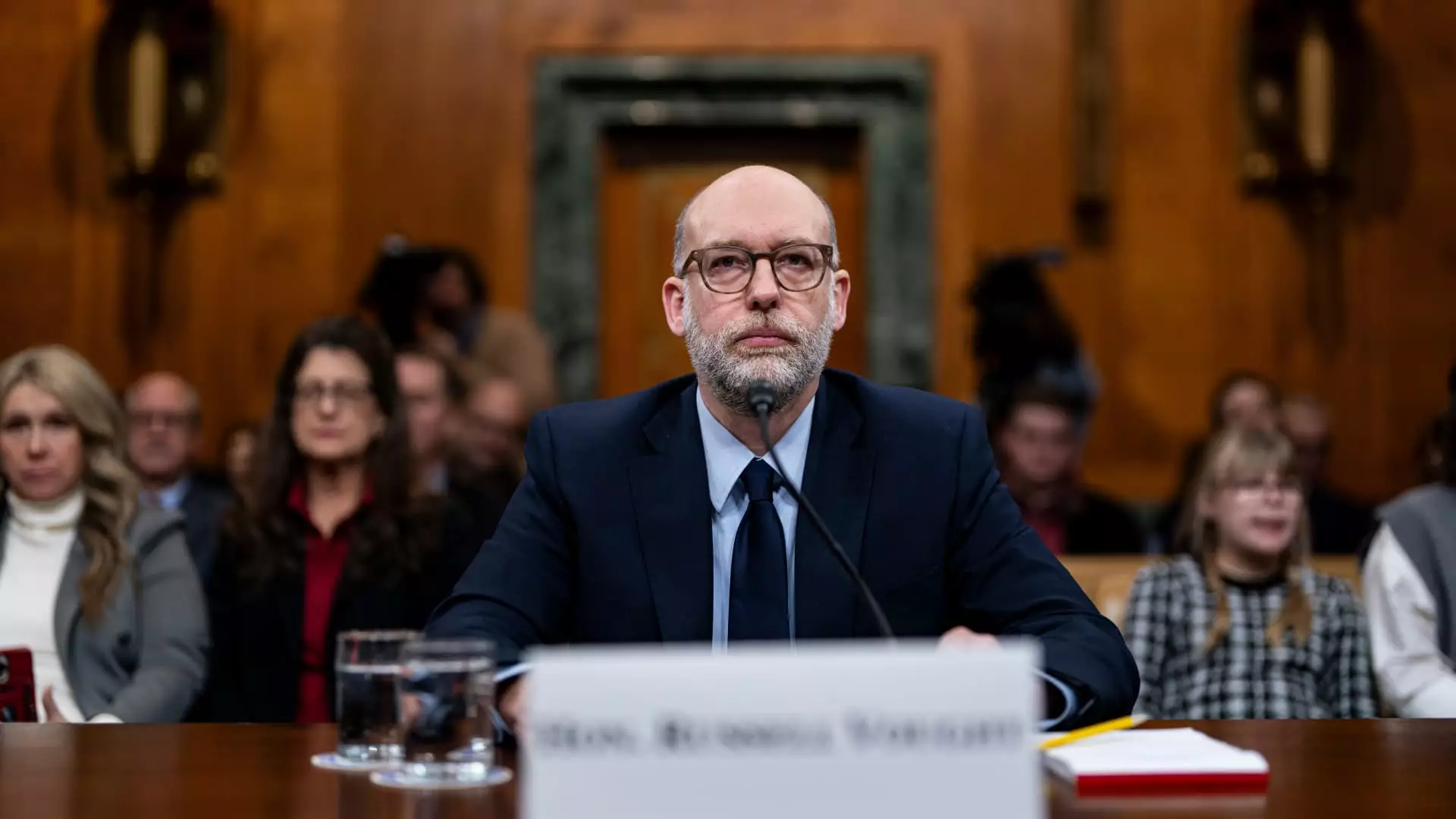In a significant move reflecting the strength of Republican influence in the U.S. Senate, President Donald Trump’s appointment of Russell Vought as budget director has raised eyebrows and ignited debate. The Senate’s narrow confirmation vote of 53-47 serves as a testament to the partisan divisions that characterize contemporary American politics. As a staunch conservative, Vought’s tenure may reshape fiscal policies in ways that could fundamentally alter the relationship between Congress and the executive branch, particularly in the context of budgetary control and government spending.
Vought’s prior experiences in the Office of Management and Budget (OMB) and his active participation in the Trump administration’s fiscal initiatives present a mixed legacy. His calls to reassess the constitutionality of the Congressional Budget and Impoundment Control Act of 1974 highlight an ideological commitment to diminishing legislative oversight on budgetary decisions. This controversial stance provoked strong opposition even among his Republican allies, indicating a potential rift in party lines regarding fundamental governance principles. The implications of Vought’s approach could extend beyond budgetary efficacy, testing the boundaries of executive power and legislative authority in unprecedented ways.
The confirmation of Vought has spurred a cascade of reactions. Democrats have vehemently criticized him, labeling his outlook as emblematic of a far-right agenda that threatens vital government services. In a notable floor speech, Senate Democratic Leader Chuck Schumer articulated these concerns, emphasizing how Vought’s policies could directly detriment American families through cuts and reallocations. This critique underscores a growing anxiety among progressives regarding the potential consequences of Vought’s proposed austerity measures.
Conversely, Republicans view Vought as a necessary figure capable of tackling waste and inefficiency in federal spending. Senate Majority Leader John Thune encapsulated this sentiment by asserting that controlling government expenditures is imperative for fostering fiscal responsibility. This dichotomy between the two parties highlights the fundamental ideological clash that continues to shape American governance.
Potential Consequences for Government Funding
The ramifications of Vought’s budgetary philosophy may be profound. His recent actions, including the controversial memo that temporarily froze billions in federal grants, underscore a willingness to align budgetary priorities closely with the Trump administration’s political agenda. Such maneuvers raise significant fears regarding the operational stability of essential services dependent on government funding. Moreover, the backlash against these actions may exacerbate the already fraught tensions between the executive and legislative branches, potentially setting a precedent for unilateral decision-making that could diminish future congressional authority.
As Russell Vought steps into his role as budget director, the implications of his confirmation will likely resonate throughout the corridors of power in Washington. The balance of authority between Congress and the presidency is at a pivotal juncture, challenging the traditional norms of governance. While proponents argue for a leaner government, critics voice fears of undermined democratic processes. The unfolding narrative surrounding Vought’s tenure will undoubtedly shape the future of federal fiscal policy, making it a critical focal point for all stakeholders in the evolving political landscape.


Leave a Reply